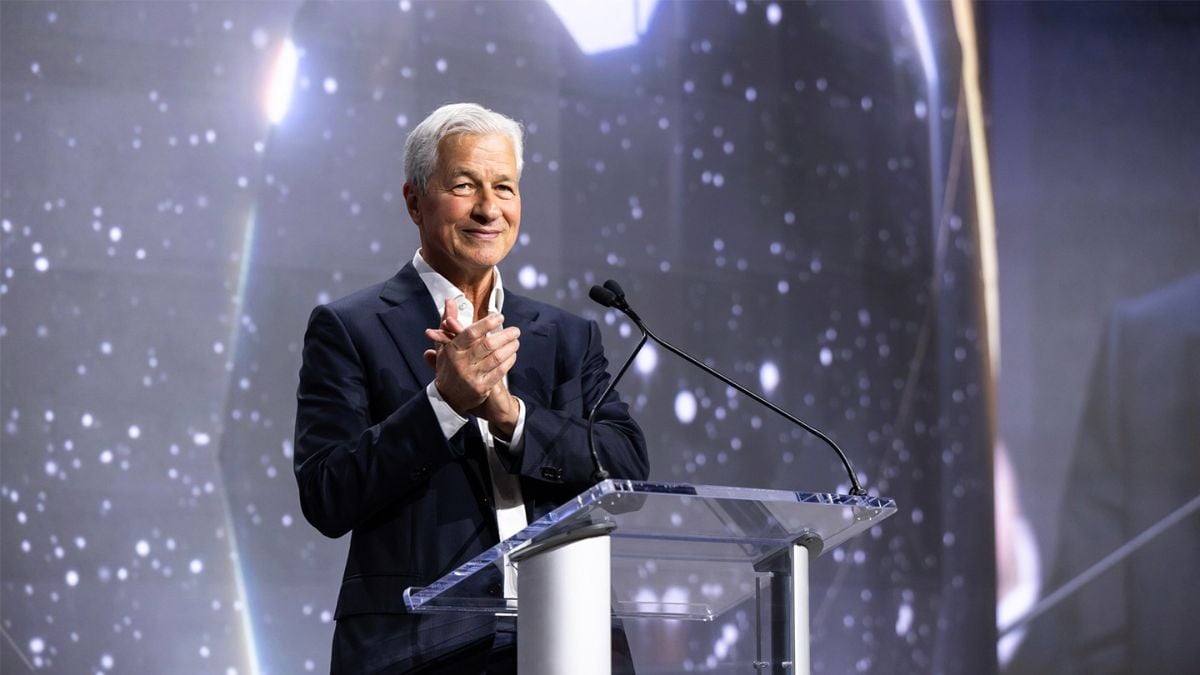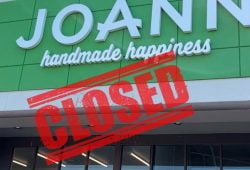
In his latest annual letter to shareholders, JPMorgan Chase CEO Jamie Dimon delivered a stark warning that has reignited economic fears across Wall Street and beyond. With global markets already rattled by sweeping new tariffs announced by President Donald Trump, Dimon’s remarks have brought renewed attention to a pressing question on everyone’s mind: “Are we in a recession? What Jamie Dimon says about tariffs in a letter to shareholders.”
Are we heading into a recession? What does Jamie Dimon think?
Jamie Dimon didn’t mince words. In his closely watched letter, he cautioned that Trump’s newly imposed tariffs would likely fuel inflation and increase the risk of a recession in the United States.
“The recent tariffs will likely increase inflation and are causing many to consider a greater probability of a recession,” Dimon wrote.
“Whether or not the menu of tariffs causes a recession remains in question, but it will slow down growth.”
Although he stopped short of declaring a recession outright, Dimon was unequivocal in his warning that the economy is facing significant headwinds. As one of the most respected figures in global finance, his statements carry weight not just with investors, but with policymakers around the world.
ALSO READ.
How do tariffs impact the U.S. economy?
Dimon outlined a clear economic mechanism: when tariffs increase the cost of imported goods, domestic prices also rise due to elevated input costs and supply chain distortions. That, in turn, reduces consumer spending power and weakens business confidence.
“We are likely to see inflationary outcomes, not only on imported goods but on domestic prices,” he wrote.
“These significant and somewhat unprecedented forces cause us to remain very cautious.”
Dimon’s tone marks a shift from his earlier comments this year, when he downplayed concerns about tariffs. Back in January, he told CNBC that if tariffs slightly boosted inflation while helping American manufacturing, people should “get over it.” His latest letter paints a far more somber picture.
What geopolitical risks did Dimon highlight?
The JPMorgan CEO didn’t just focus on economic metrics. He made a broader argument about how Trump’s “America First” foreign policy—combined with aggressive tariff strategies—could weaken the U.S.’s global leadership.
“America First is fine, as long as it doesn’t end up being America alone,” Dimon wrote.
He warned that if Western military and economic alliances fall apart, the U.S. could lose its unique standing in the world. He also drew a critical connection between economic and national security:
“It is extremely important to recognize that security and economics are interconnected – ‘economic’ warfare has caused military warfare in the past.”
In previous years, Dimon expressed concern about geopolitical instability—from the war in Ukraine to conflict in the Middle East—but he rarely zeroed in on a single U.S. policy with such urgency.
Are the markets reacting to Trump’s tariff announcements?
The answer is yes—and the reaction has been severe. Following Trump’s announcement of universal 10% tariffs and reciprocal tariffs aimed at more than 180 countries, including key allies like the European Union, Japan, and China, financial markets went into freefall. The Dow Jones Industrial Average plunged 3,910 points in just two days.
Dimon noted that while the market had already pulled back from recent highs, valuations remain elevated and vulnerable to further shocks:
“Even with the recent decline in market values, prices remain relatively high.”
He added that the U.S. stock market is dangerously close to bear territory, just weeks after hitting a record high.
Is the U.S. economy already showing signs of weakness?
According to Dimon, economic resilience is beginning to fade. He acknowledged that consumer spending and business fundamentals remained solid until recently, but noted growing signs of softness.
“Despite the unsettling landscape, the U.S. economy, at least until recently, continued to be resilient… though with some recent weakening.”
In his view, the U.S. now faces one of the most complicated and perilous geopolitical and economic environments since World War II, fueled by trade wars, fiscal deficits, and geopolitical uncertainty.
What do other experts say about Trump’s tariffs?
Dimon’s concerns were echoed—and even amplified—by billionaire hedge fund manager Bill Ackman, CEO of Pershing Square Capital Management. In a fiery post on X (formerly Twitter), Ackman warned that Trump’s tariff policies could trigger a “global economic nuclear winter.”
“If Trump launches an economic nuclear war against the world, business investment will come to a halt, consumers will shut their wallets, and we will severely damage our reputation as a place to do business.”
Ackman argued that Trump still had time to renegotiate asymmetrical trade deals, but warned that confidence in the U.S. as a stable economic partner was already deteriorating rapidly.
Can the situation still be reversed?
Dimon believes the damage may still be manageable—if action is taken quickly.
“The quicker this issue is resolved, the better because some of the negative effects increase cumulatively over time and would be hard to reverse.”
He also flagged growing concerns about persistent inflation and warned that interest rates may need to stay elevated for longer than expected, even as the economy slows.
“The economy is facing considerable turbulence… with the potential positives of tax reform and deregulation and the potential negatives of tariffs and trade wars, ongoing sticky inflation, high fiscal deficits and still rather high asset prices and volatility.”
So, are we in a recession?
While Dimon stops short of saying the U.S. is in recession now, his letter suggests that the economy is dangerously close to the edge. With markets sliding, consumer confidence wavering, and inflation proving stickier than forecasted, conditions are ripe for a potential downturn.
“Markets still seem to be pricing assets with the assumption that we will continue to have a fairly soft landing,” Dimon concluded.
“I am not so sure.”
The question “Are we in a recession? What Jamie Dimon says about tariffs in a letter to shareholders” reflects more than just search engine curiosity. It points to a broader anxiety gripping both Wall Street and Main Street.
Dimon’s letter is a wake-up call for policymakers to rethink aggressive trade policies that may feel politically expedient but carry steep economic risks. It’s also a warning to investors to stay cautious amid a volatile landscape marked by uncertainty.
If there’s one takeaway from Dimon’s message, it’s this: the economy may not be in recession yet, but the storm clouds are gathering—and fast.
⇒ SUBSCRIBE TO OUR CONTENT ON GOOGLE NEWS










